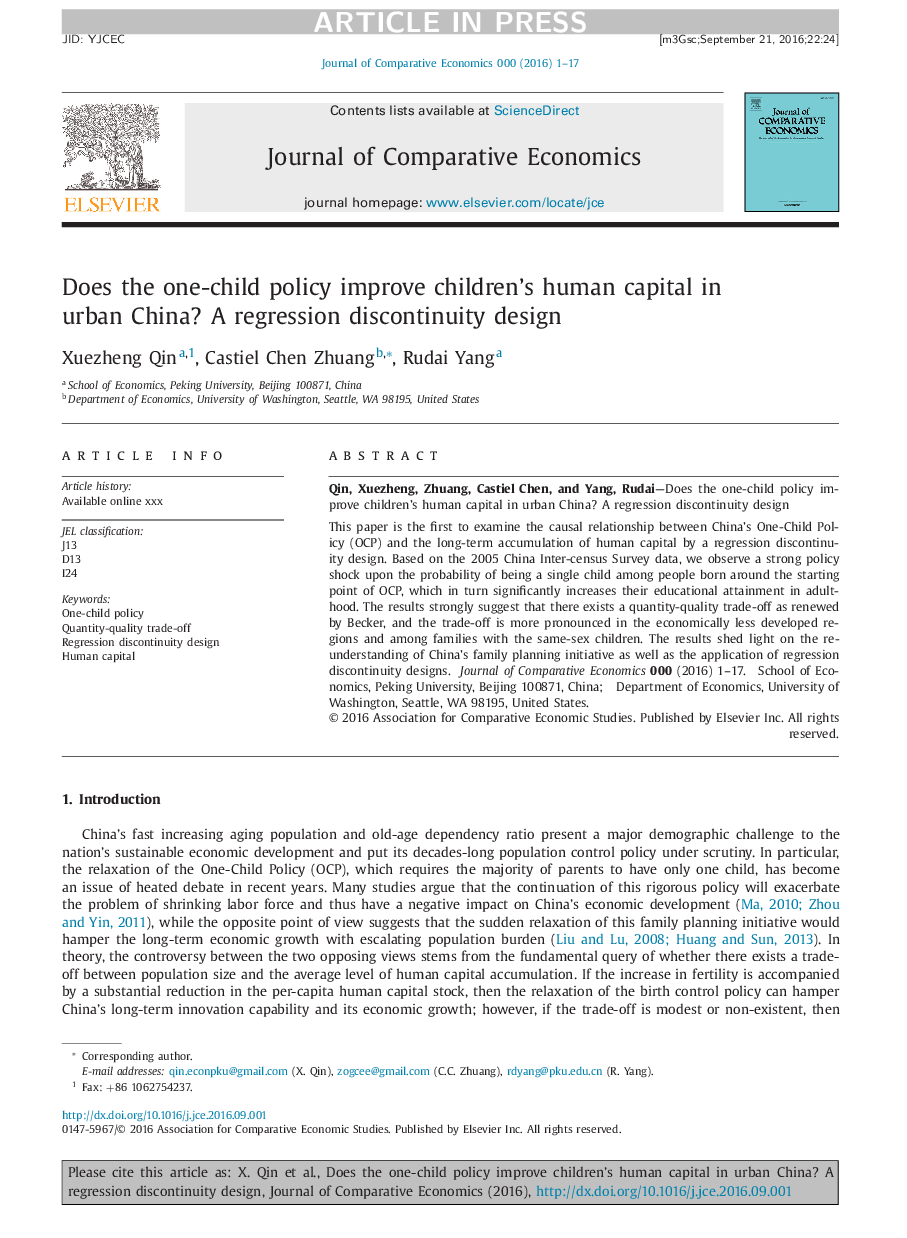| Article ID | Journal | Published Year | Pages | File Type |
|---|---|---|---|---|
| 5092050 | Journal of Comparative Economics | 2017 | 17 Pages |
Abstract
This paper is the first to examine the causal relationship between China's One-Child Policy (OCP) and the long-term accumulation of human capital by a regression discontinuity design. Based on the 2005 China Inter-census Survey data, we observe a strong policy shock upon the probability of being a single child among people born around the starting point of OCP, which in turn significantly increases their educational attainment in adulthood. The results strongly suggest that there exists a quantity-quality trade-off as renewed by Becker, and the trade-off is more pronounced in the economically less developed regions and among families with the same-sex children. The results shed light on the re-understanding of China's family planning initiative as well as the application of regression discontinuity designs.
Related Topics
Social Sciences and Humanities
Economics, Econometrics and Finance
Economics and Econometrics
Authors
Xuezheng Qin, Castiel Chen Zhuang, Rudai Yang,
